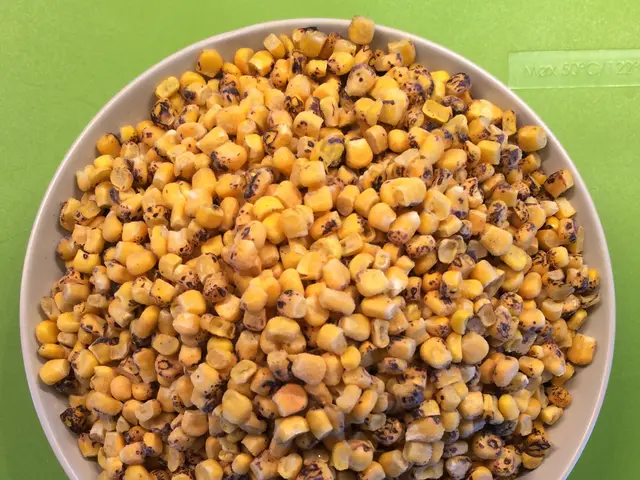Quantity of Caffeine Present in Decaffeinated Coffee
Coffee lovers often opt for decaf coffee, thinking it's completely free of caffeine. But the truth is, decaf still has some caffeine left - generally between 2 to 5 milligrams per 8-ounce cup.
The Swiss Water Process, a water-based osmosis method, is one way to remove caffeine from coffee beans. It's chemical-free and typically leaves decaf coffee with caffeine levels within the 2 to 5 mg range.
On the other hand, solvent-based methods like the methylene chloride (MC) or ethyl acetate (EA) process are more common but use chemicals to extract caffeine. These methods are effective in reducing caffeine levels to trace amounts, but they can leave a slight chemical taste in the decaf coffee.
So, while decaf coffee may not give you the same jolt as regular coffee, it's still not 100% caffeine-free. If you're highly sensitive to caffeine, or dealing with anxiety or heart conditions, it's essential to keep this in mind.
Other factors like serving size and brewing method can influence the total caffeine content in a cup of decaf coffee. So, it's always a good idea to check the labels and find the perfect balance that works for you.
In conclusion, decaf coffee can be a great alternative for coffee lovers who want to limit their caffeine intake. Though it's not entirely caffeine-free, the small amounts present are unlikely to cause harsh effects for most people. If you're sensitive to caffeine, choosing decaf could be the smart way to enjoy your late-night coffee fix!
Fun Facts:
- A single decaf espresso shot can contain anywhere between 3 to 15 milligrams of caffeine.
- Decaffeinated coffee contains antioxidants and essential nutrients, though slightly less than regular coffee.
- Some people choose to avoid decaf coffee due to concerns about chemical solvents like methylene chloride and ethyl acetate.
- Scientific research shows that decaf coffee, despite containing minimal caffeine (2-5 mg per 8-ounce cup), still offers health benefits, such as antioxidants and essential nutrients, more akin to regular coffee, though in slightly lower quantities.
- The Swiss Water Process, a chemical-free method for decaffeination, ensures that decaf coffee retains a similar flavor profile to regular coffee and maintains caffeine levels within the 2 to 5 mg range, making it a popular choice among health-conscious and discerning coffee lovers.
- Adhering to a health-and-wellness lifestyle, including habits such as cooking with organic food-and-drink options, maintaining a balanced lifestyle, and engaging in regular fitness activities, can help manage and monitor caffeine intake from decaf coffee, ensuring a positive overall impact on one's health and well-being.








